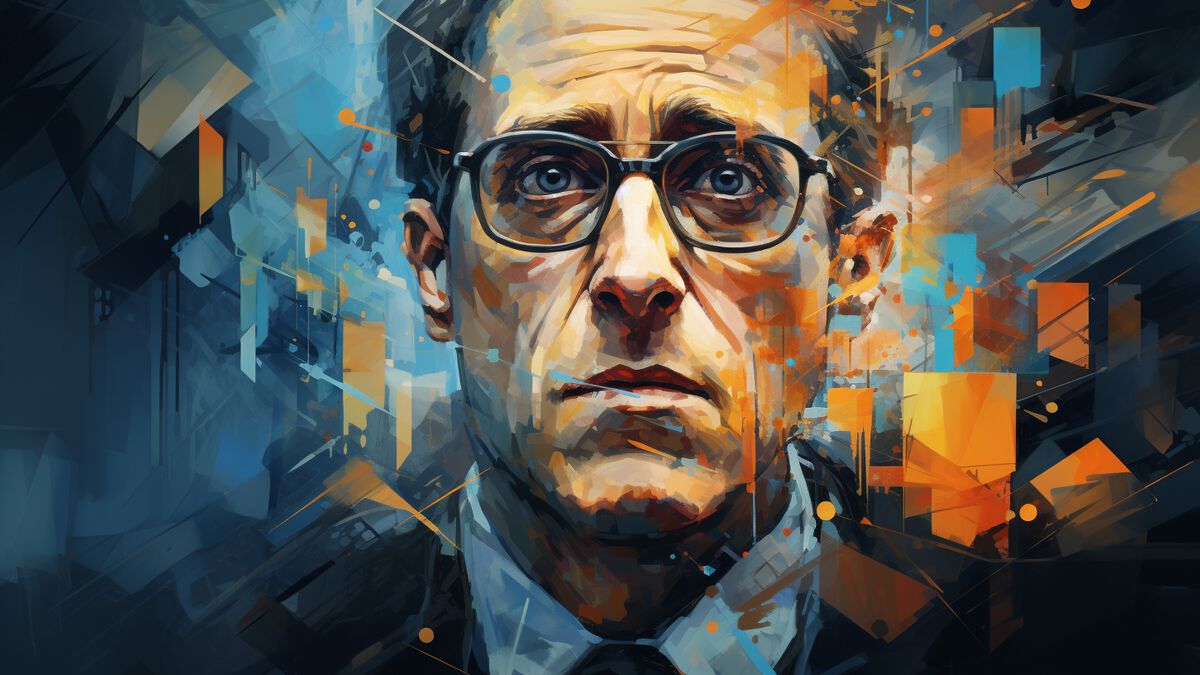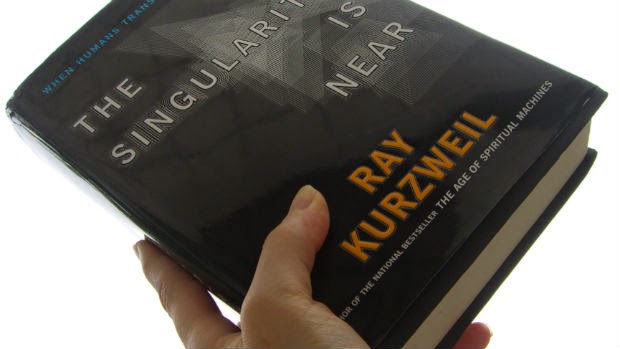Technological Singularity
The Technological Singularity is a hypothetical future time when technological change becomes so rapid that humans, as we now are, will no longer have any practical capacity for prediction or control. This may occur as a result of the development of general artificial intelligence, capable of recursive self-improvement. It would be a momentous milestone in human evolution, presenting unprecedented risks and opportunities, likely leading either to our extinction or to our transformation into superhumanity. The idea was popularized by Ray Kurzweil in his book, The Singularity Is Near.
This is a list of articles that Lincoln Cannon has written about the Technological Singularity. A full archive of all articles that Lincoln has published since 2005 is also available. You may also search for articles and other content that's available on any of Lincoln's websites.
-

The Transfiguration Is Near
In the New Testament, the apostle Paul prophesies about the end of death, forth-telling (yes, “forth-telling” in contrast to “fore-telling”) what he characterizes as a “mystery.” The mystery, he says, is that not all humans will die. But rather, some of us will transfigure from mortality to immortality without dying. ... -

4 Reasons I Don't Identify as a Singularitarian
When others learn that I identify as a Transhumanist, or when they see me reference Moore’s Law or Kurzweil’s Law with enthusiasm, they often assume that I identify as a Singularitarian. That is, they often assume I’m someone who advocates the idea of the Technological Singularity. It’s an idea that ... -

Ray Kurzweil and the Postsecularization Hypothesis
Ray Kurzweil is evidence for the postsecularization hypothesis: religion is not at all dying, but is merely continuing to evolve. He’s probably by far the most influential Singularitarian in the world. And he’s perhaps even the most influential living futurist. Kurzweil got there by directly engaging in postsecular rhetoric. Before ... -

The Singularity Doesn't Need Paul Allen to Understand
Like others before him, Paul Allen says that the “singularity is not near.” We will not anytime soon engineer computers superior to human brains, he argues. His argument is based on the observation that human biology, neurology and cognition are highly complex, and he concludes we will need to understand ... -

The Singularity Doesn't Require Understanding
Neuroscientist David Linden challenges the timeline (but not the feasibility) of Ray Kurzweil’s predictions, and argues that “The Singularity is Far.” I’m skeptical. David explains that our understanding of brain processes is progressing at a linear rate. I agree with that – in any case, he would know this better ... -

Speculating Around Speculative Singularity Roadblocks
In his book, Physics of the Future, Michio Kaku outlines six roadblocks to the Singularity. The roadblocks are at least as speculative as the technological singularity. And we can reasonably speculate our way around them. Below are Michio’s proposed roadblocks, indented, followed by my thoughts. “First, the dazzling advances in ... -

Technological Singularity as Religious Ideology
Matthew Bailey writes for H+ Magazine, provoking attention with the title “The Technological Singularity as Religious Ideology” and then quickly stating that “The Technological Singularity is NOT a Religion!” I agree with Matthew both that the technological singularity, in itself, is not a religion; and that it is compatible with ... -

You Don't Intuit Accelerating Technological Change
Regularly, in both professional and personal settings, I have the opportunity to discuss accelerating technological change. For the most part, the persons I talk with have heard of Moore’s Law and agree that technology is advancing rapidly. But few demonstrate an appreciation of the ramifications. Often, in a single sentence, ... -

My Son Asks, What Will Computers Be Like in 2033?
My oldest son, Spencer, recently won the science fair with his project on Moore’s Law and accelerating technological change. He and I spent a lot of time collecting price and performance information about historic computers, discussing how we can try to predict the future based on projections of historic trends, ... -

The Accelerating Exponent of Kurzweil's Law
Kurzweil’s Law (generalizing from Moore’s Law) observes that technology changes exponentially as new technologies contribute toward increasing the rate of change. In addition to being exponential, however, the exponent itself may increase exponentially. So we may end up observing accelerating exponential change or meta-exponential change. One of many examples of ... -

TransVision Thursday Keynote Ray Kurzweil
I’m in Chicago for TransVision 2007. Here are some notes and thoughts from Ray Kurzweil’s keynote. Ray Kurzweil mentioned that he usually has to explain accelerating change. This group is different. Why do some people get it quick, while some resist? It might be attacking their coping mechanisms, so they ... -

Watching the Law of Accelerating Returns
Gordon Moore, one of the founders of Intel Corporation, observed in the 1960s that the ratio of complexity to cost for computer components doubled approximately every two years. Today this observation is known among computer scientists as “Moore’s Law.” In its original formulation, Moore’s Law reflected the rate of advance ...